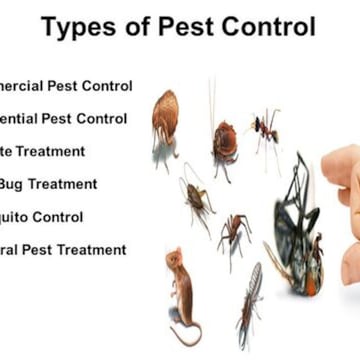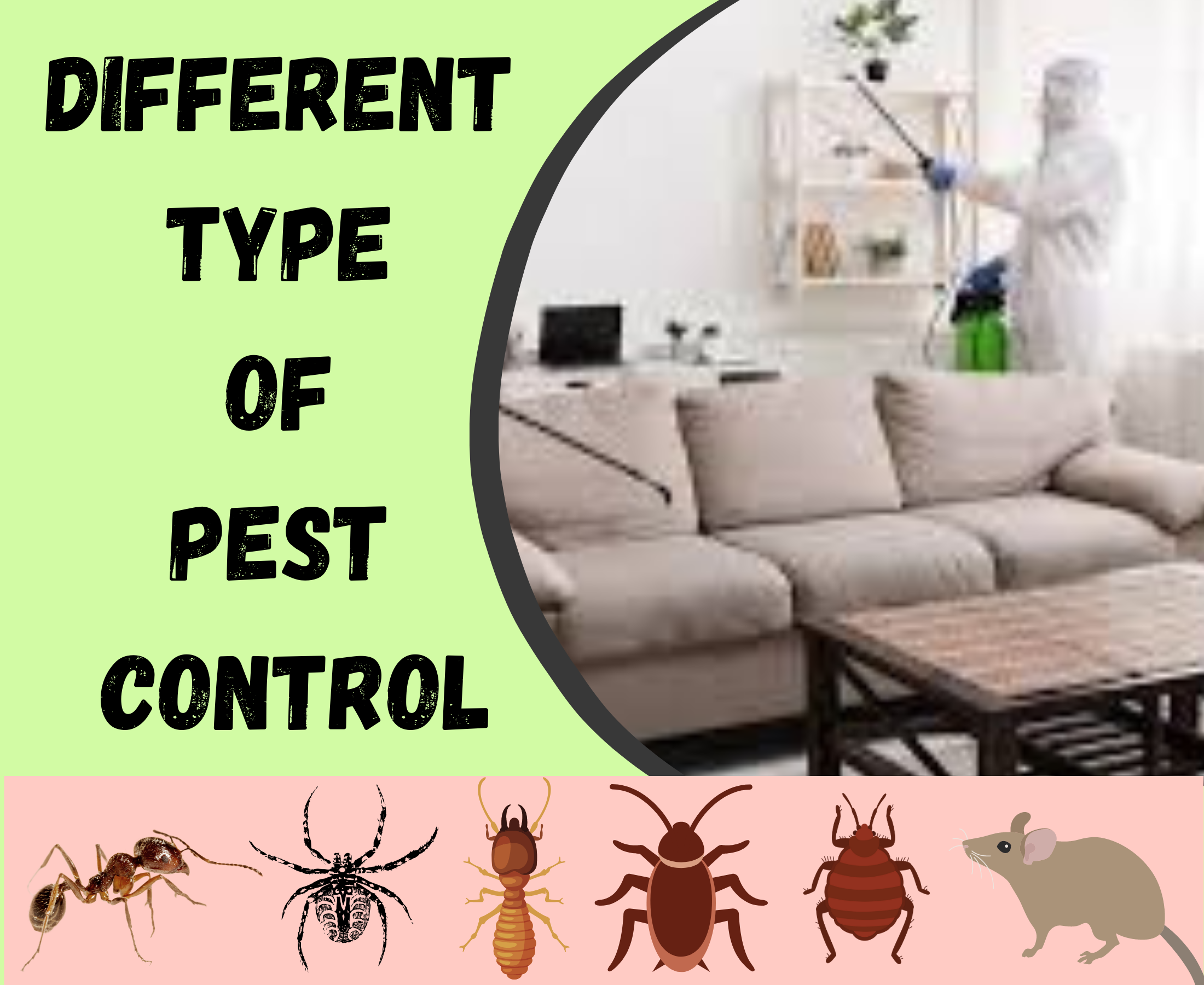The Of Pest Control
Wiki Article
Some Known Facts About Pest Control.
Table of ContentsHow Pest Control can Save You Time, Stress, and Money.Pest Control Things To Know Before You Buy5 Easy Facts About Pest Control ShownThe Only Guide to Pest ControlThe Main Principles Of Pest Control What Does Pest Control Do?
Our searchings for show that the first analysis will certainly cost anywhere from $160-$300 generally. Preferably, homeowners ought to arrange analyses for their residences at the very least once a year. From there, many pest control specialists established prices based upon the client's particular demands. This typically costs anywhere between $400-$1000 for the whole year's coverage, with monthly or bi-monthly check outs currently rolled right into the final price.Depending on the issue, a job that requires an one-time go to normally costs $300 to $550. These are the most convenient prices to outline in your insect control catalogs. Make certain to clarify to your customer the process and the moment it will take to analyze the situation. Throughout this very first go to, you may uncover that the job needs a number of added sees, whereupon you can consider it a first go to.
Parasites that usually needs recurring gos to consist of: Roaches. Our findings show that a preliminary go to is regarding $180 and is the first of a recurring agreement. Throughout this first check out, you ought to: Assess the problem.
In basic, the regularity of regular sees is: Every month: $40 45. Bug control is a chemically-intensive service. Chemicals are the crucial materials that pest control specialists make use of to complete a job.
The Pest Control Diaries
Crucial materials and products you'll make use of include: Respirator. Sprayer. Handwear covers. Duster. Foamer Baiting devices. UV light. Various other safety tools. It is very important to have every one of the right devices prior to starting a task. Your tools should be consisted of as component of your expenses costs. If you have workers, then labor costs are going to be the biggest expenses for your organization.Limitations of Chemical Monitoring Be able to analyze insect issues, figure out if monitoring is required, and make proper recommendations making use of IPM strategies. Be acquainted with different methods of insect administration - their benefits and restrictions.
This chapter talks about (IPM), a technique that makes use of expertise regarding parasites and their, methods, nonchemical approaches, and chemicals to manage parasite troubles. Additional information about IPM for specific plants is included in chapters that focus on those plants. Nonchemical parasite control actions are emphasized in phase 17, "Organic Gardening." Handling birds and mammals is covered in phase 20, "Wild animals." Managing in the yard and garden is covered in chapter 6, "Weeds." Pests in a yard or landscape might consist of pests and mites, weeds,, creatures, and birds.
Pest Control for Dummies
Many individuals rush to pull, hoe, or spray every weed they see. Bugs and weeds, nevertheless, contribute in the. After planting a yard or developing a lawn, the natural process of plant sequence starts to restore and nonnative plants. A weed expanding in a grass represents the initial stage in a series of events that, if permitted to proceed, could at some point result in a forest.What we call "pests" are part of an all-natural system at work. An ecosystem has no parasites. Only people take into consideration particular species parasites when they happen where they are not wanted. We will certainly be more successful in taking care of unwanted varieties when we realize that these organisms adhere to foreseeable patterns that we can utilize to our advantage.
Bugs prone to a chemical were swiftly killed, leaving resistant ones to reproduce and multiply. It ended discover this info here up being clear that chemicals alone would certainly not fix all pest troubles.
An IPM strategy allows some degree of pests in the atmosphere. Pests are a lot less likely to endure a program that makes use of several techniques of decreasing their populations. Integrated parasite monitoring was initial suggested by entomologists due to the fact that pests were the initial group of pests to prove tough to manage with chemicals alone.
3 Easy Facts About Pest Control Described

Monitoring instead of removal of parasites is the goal. An IPM strategy starts with a cautious examination of each bug infestation. Only then can one choose about the proper tactics necessary to reduce bug tasks. The life process of the parasite, possible damages, all-natural adversaries, and results of weather, to name a few factors, are considered before a control plan is carried out.
Clover growing in a grass may be deemed an unwanted weed, but as a legume it is Related Site synthesizing nitrogen for the soil and the flowers are giving nectar to honey and various other. Tolerance for some weeds might belong to an IPM plan. might be consuming the fallen leaves of a plant, however when they are recognized as the larvae of Eastern tiger swallowtail butterflies, their damages may be tolerated so we can delight in the gorgeous butterfly.
Matt Bertone Avoidance is the first tool in pest management since it is the most effective, least expensive, many eco friendly option. Choosing a healthy and balanced plant that flourishes in the desired place with the readily available light, planting it carefully, and guaranteeing that it has adequate water and nutrients stops anxiety and decreases insect troubles.
All About Pest Control
The second essential tool in parasite administration is early intervention. Being existing and observant in the yard guarantees very early discovery. Reacting to issues promptly, before they have time to increase, requires a less dramatic intervention. The third essential device is recordkeeping; tracking what happens in the yard makes it possible for a gardener to acknowledge patterns and make informed choices.Several risk-free, sensible, nonchemical techniques of plant protection you can check here and pest management may decrease or remove the demand to spray. Other approaches are most valuable when utilized with chemicals. To carry out administration techniques correctly and to reduce losses, garden enthusiasts should understand the kinds of pests that assault plants and understand pest biology.
Bug management techniques fall into four groups: cultural, mechanical, organic, and chemical. Keeping plants healthy and preventing plant stress helps plants to much better stand up to and repair the damage brought on by a pest or mite pest. Some evidence indicates that healthy and balanced plants withstand invasion by pests better than plants with low vigor.
Conducting a soil test and applying only the advised quantity of plant food and lime makes best use of the benefit to the plant while reducing troubles connected to too much use fertilizer. Covering the dirt with numerous inches of mulch secures the plant in a number of means: minimizing dirt water loss to dissipation, decreasing weed competition, offering nutrients, and creating a suitable setting for earthworms and bacteria that maintain the soil loosened for origins and damage down organic product to launch nutrients.
The Only Guide for Pest Control

If tilling is regarded necessary, think about doing it in the autumn when the life cycles of numerous parasites brings them near the surface. At the surface, bugs end up being subjected to the weather in addition to birds and other natural opponents. Fall tilling can also destroy insects in crop deposits. Usage healthsome and insect-free qualified seeds and plants if available.
Report this wiki page